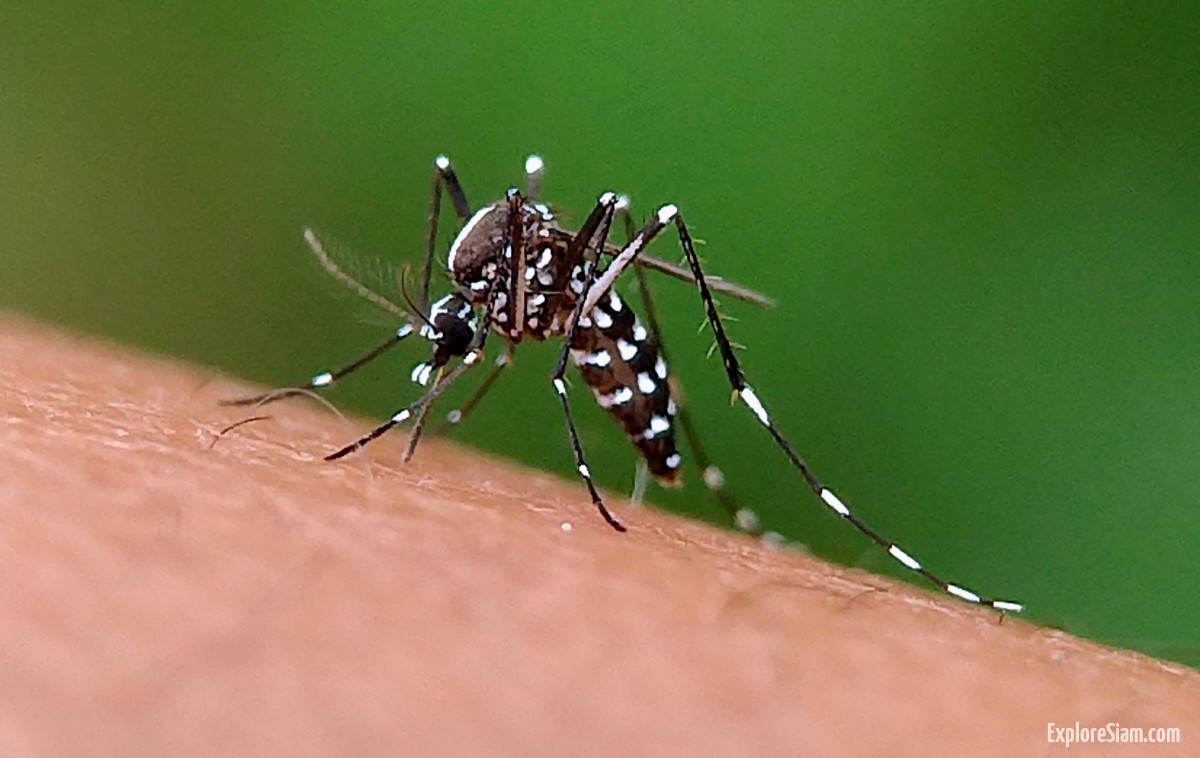Mosquitoes and midges in Thailand are more than just a nuisance; they pose significant health risks to residents and travelers alike. Understanding the threats they present and the measures you can take to protect yourself is essential for a safe and enjoyable trip.
Thailand’s tropical climate creates an ideal breeding ground for mosquitoes and midges, particularly in rural and jungle areas. These insects are less prevalent in urban environments due to better sanitation and fewer standing water sources, which are crucial for their breeding. However, even in cities, it’s important to remain vigilant, especially during the rainy season when mosquito activity increases.
Mosquitoes in Thailand are known carriers of several dangerous diseases, including dengue fever, malaria, Zika virus, and chikungunya. Dengue fever is particularly widespread in urban areas, while malaria is more common in rural and forested regions. Midges, though less likely to transmit diseases, can cause severe itching and discomfort with their bites.
To protect yourself from these insects, it’s crucial to avoid jungle and heavily vegetated areas where mosquitoes and midges thrive. If you do venture into these regions, wear long-sleeved shirts, long pants, and use insect repellent generously. Insect repellent should be a staple in your travel kit, and it’s advisable to use locally produced products. Local repellents are formulated specifically for the types of mosquitoes and midges found in Thailand and are often more effective than those brought from abroad.
When staying indoors, ensure that windows and doors have intact screens to prevent insects from entering. Regularly check these screens for any holes or gaps and repair them promptly. In accommodations without screened windows, use mosquito nets while sleeping. These nets can provide an additional layer of protection, especially in areas with high mosquito activity.
Using air conditioning can also help keep mosquitoes at bay, as these insects prefer warm, humid environments. Keeping your living space cool and dry can reduce the likelihood of mosquito infestations. Additionally, avoid using scented lotions and perfumes, as these can attract mosquitoes.
During outdoor activities, especially in the early morning and late afternoon when mosquitoes are most active, take extra precautions. Apply insect repellent to all exposed skin, and reapply as directed on the product label. Wearing light-colored clothing can also be beneficial, as mosquitoes are more attracted to dark colors.
One of the most effective ways to protect yourself from mosquito-borne diseases is to use mosquito coils and electric mosquito killers. These devices release insecticide into the air, creating a protective barrier around you. In rural areas or places with open-air accommodations, these can be particularly useful.
Travelers should also be aware of standing water, which is a common breeding ground for mosquitoes. Avoid areas with stagnant water, and if possible, ensure that any standing water near your accommodation is treated or removed. This includes checking for water collected in plant pots, gutters, and other containers.
If you experience symptoms such as fever, severe headache, pain behind the eyes, joint and muscle pain, rash, or mild bleeding, seek medical attention immediately. These could be signs of a mosquito-borne illness, and prompt treatment is crucial.
While midges do not carry diseases as severe as those spread by mosquitoes, their bites can still cause significant discomfort. To protect yourself from midges, use similar preventative measures: apply repellent, wear protective clothing, and avoid areas where midges are known to swarm, such as near bodies of water at dusk and dawn.
In conclusion, while mosquitoes and midges in Thailand can pose serious health risks, understanding their behavior and taking appropriate safety measures can significantly reduce the likelihood of being bitten. By using local insect repellents, maintaining a mosquito-free environment indoors, and avoiding high-risk areas, you can enjoy your time in Thailand with greater peace of mind. Stay informed about the areas you plan to visit, and always be prepared with the necessary precautions to protect yourself from these pervasive pests.





